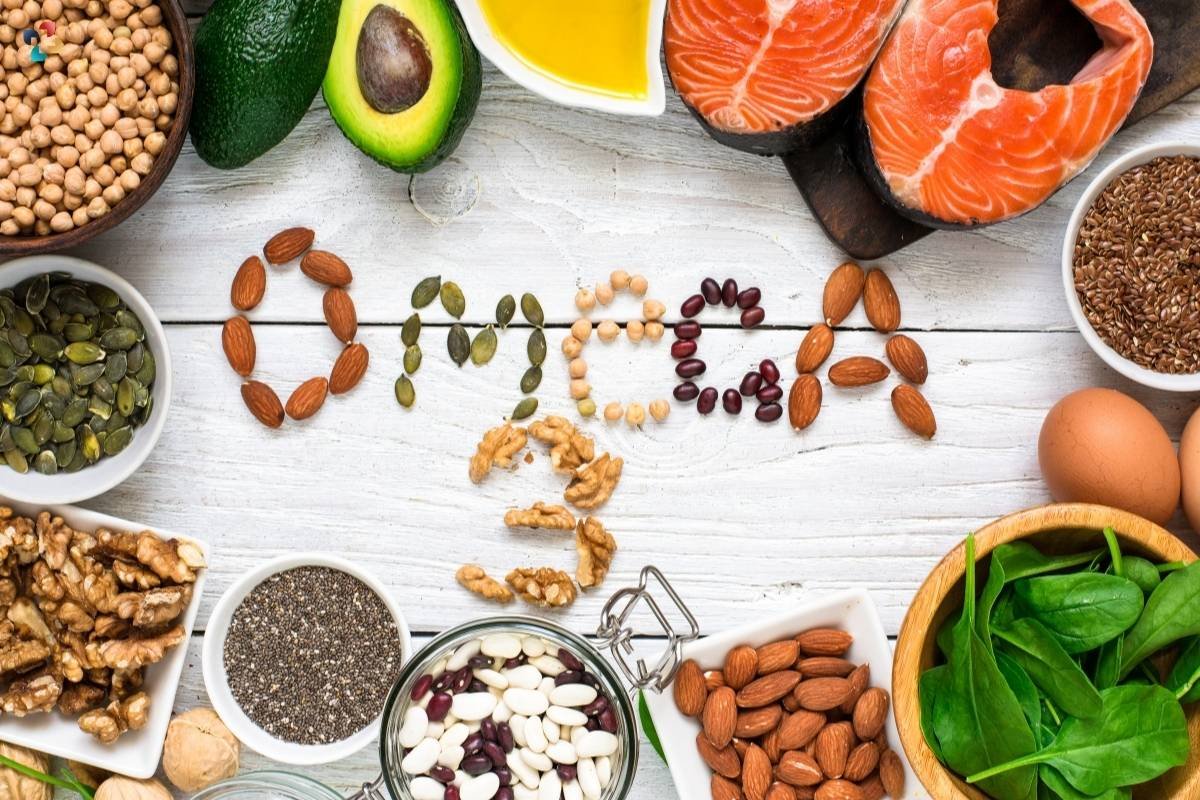A balanced and heart-friendly diet is one of the most effective strategies to support cardiovascular health, which is a crucial component of overall well-being. In this post, we’ll examine the significance of eating the correct food for a healthy heart and look at a variety of nutrient-dense choices that help improve cardiovascular health.
Understanding the Role of Nutrition in Heart Health
The significance of nutrition in promoting heart health cannot be overstated. A diet rich in essential nutrients can help manage and prevent various cardiovascular conditions, including heart disease and hypertension. Incorporating the right foods into your daily meals not only supports heart function but also contributes to overall longevity and vitality.
Key Nutrients for Heart Health
1. Omega-3 Fatty Acids: Essential for Heart Function

Food for a healthy heart often includes sources of omega-3 fatty acids, known for their cardiovascular benefits. Fatty fish like salmon, mackerel, and trout are excellent choices, providing a rich supply of eicosapentaenoic acid (EPA) and docosahexaenoic acid (DHA). These omega-3 fatty acids contribute to reducing inflammation, improving blood vessel function, and lowering the risk of heart disease.
2. Fiber: A Heart-Healthy Digestive Aid
Incorporating fiber-rich foods into your diet is another crucial aspect of promoting heart health. Whole grains, legumes, fruits, and vegetables are excellent sources of dietary fiber. Fiber helps lower cholesterol levels, regulate blood sugar, and maintain a healthy weight – all essential factors for cardiovascular well-being.
3. Antioxidants: Combatting Oxidative Stress
A diet rich in antioxidants can play a significant role in protecting the heart from oxidative stress and inflammation. Berries, nuts, dark chocolate, and colorful vegetables are packed with antioxidants like flavonoids and polyphenols. These compounds help neutralize free radicals, preventing damage to blood vessels and reducing the risk of heart disease.
4. Potassium: Regulating Blood Pressure
Foods high in potassium are instrumental in maintaining healthy blood pressure. Bananas, oranges, potatoes, and leafy greens are excellent sources of this essential mineral. Potassium helps balance sodium levels, preventing hypertension and supporting overall heart function.
5. Lean Proteins: Supporting Heart Health
Choosing lean protein sources is a vital aspect of a heart-healthy diet. Opt for skinless poultry, legumes, tofu, and fish. These proteins are lower in saturated fats, promoting healthy cholesterol levels and reducing the risk of cardiovascular diseases.
Here are 9 Incorporating Food for a Healthy Heart into Your Diet:
1. Fatty Fish: A Rich Source of Omega-3 Fatty Acids

One of the best additions to your food for a healthy heart is fatty fish. Salmon, mackerel, and sardines are renowned for their omega-3 fatty acid content. Consuming fatty fish at least twice a week can significantly contribute to reducing the risk of heart disease.
2. Whole Grains: Fiber-Rich Heart Supporters
Whole grains such as brown rice, quinoa, and oats are excellent sources of fiber. Incorporating these grains into your meals not only provides sustained energy but also supports heart health by regulating cholesterol levels and improving overall digestive function.
3. Colorful Vegetables: Packed with Antioxidants
An array of colorful vegetables should adorn your plate to maximize antioxidant intake. Leafy greens, tomatoes, bell peppers, and carrots are rich in vitamins, minerals, and antioxidants that contribute to heart health. Aim for a diverse range of vegetables to ensure a broad spectrum of nutrients.
4. Berries: Antioxidant Powerhouses
Berries, including blueberries, strawberries, and raspberries, are not only delectable but also embody the essence of food for a healthy heart. These vibrant fruits pack a powerful antioxidant punch, enriched with anthocyanins that significantly contribute to reduced inflammation and improved heart health. Enhance the nutritional value of your morning routine by incorporating a generous handful of these berries into your yogurt or oatmeal – a delightful and heart-boosting start to your day, aligning perfectly with the principles of food for a healthy heart.
5. Nuts and Seeds: Heart-Friendly Snacking
Almonds, walnuts, flaxseeds, and chia seeds emerge as outstanding choices for heart-healthy snacking, aligning perfectly with the principles of food for a healthy heart. These nuts and seeds present a winning combination of omega-3 fatty acids, fiber, and antioxidants, making them an ideal addition to a balanced diet that prioritizes food for a healthy heart. By seamlessly incorporating a small handful of these nutritious options into your daily routine, you not only enjoy a satisfying snack but also actively contribute to heart health, showcasing the positive impact of mindful food for a healthy heart.
6. Legumes: Plant-Based Protein Power
Beans, lentils, and chickpeas are versatile legumes that offer an abundance of heart-healthy benefits. Rich in fiber, potassium, and protein, legumes can help lower cholesterol levels and regulate blood pressure. Consider adding legumes to soups, salads, or main dishes for a nutrient-packed boost.
7. Dark Chocolate: Indulgence with Heart Benefits
Surprisingly, dark chocolate in moderation can be a heart-healthy indulgence. Choose chocolate with at least 70% cocoa content to ensure maximum flavonoid intake. Flavonoids contribute to improved blood flow and heart health. Enjoy a square or two of dark chocolate as a delightful and heart-friendly treat.
8. Balancing Act: Short-Term Pleasure, Long-Term Health

In the pursuit of a healthy heart, it’s crucial to strike a balance between short-term pleasure and long-term health goals. While occasional indulgences are acceptable, focusing on a consistent, nutrient-dense diet is key to reaping the benefits of food for a healthy heart.
9. Managing Challenges: Fuel Prices and Supply Chain Stability
In the complex landscape of the aviation industry, PAL faces challenges such as volatile fuel prices and supply chain disruptions. These issues impact operational costs and flight availability. To mitigate fuel-related challenges, PAL cautiously explores fuel hedging strategies. Additionally, proactive collaboration with stakeholders, partners, vendors, and suppliers is crucial to navigating supply chain uncertainties and ensuring the seamless replacement of parts when needed.
Conclusion: Sustaining Heart Health Through Nutrition
To sum up, maintaining cardiovascular well-being can be achieved by the proactive and efficient adoption of a heart-healthy diet. You may provide your body with the vital nutrients it needs by including food for a healthy heart, such as heart-friendly nuts and seeds, fiber-rich whole grains, antioxidant-rich fruits and vegetables, and fatty seafood that is high in omega-3 fatty acids. Furthermore, PAL’s dedication to improving in-flight experiences and tackling industry issues emphasizes how critical it is to adjust to changing trends in order to maintain success. In the end, taking care of your heart through thoughtful dietary decisions leads to a lively and satisfying existence in addition to a healthy cardiovascular system.
Also Read: Conquering Cholesterol: Tips for a Healthy Heart Diet








